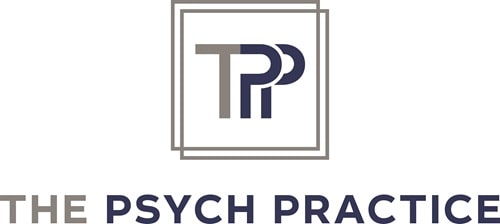
Playing a sport is an excellent way to get healthy, feel part of a community, minimise risk of disease and improve overall quality of life. Also fun fact-exercise is one of the best ways to increase neuroplasticity – which is how your brain develops new connections to learn new skills more efficiently. There are proven benefits to being involved in sports teams but it is important to be aware of potential risks.

One known risk is a Sports-related Concussion (SRC) which is a form of Traumatic Brain Injury (TBI) that occurs as a result of “a bump, blow, or jolt to the head or a penetrating head injury that disrupts the normal function of the brain.”
This can affect memory, attention, mental processing speed, and emotional control.
After a sports-related b rain injury, it is important to ask:
rain injury, it is important to ask:
- How severe was the injury?
- Did you lose consciousness?
- Did you experience amnesia/ memory loss?
- Do you have dizziness spells, nausea or headaches?
- Do you feel your mental functioning is impaired (such as confusion)?
What to expect following a Sports-related brain injury?
The most difficulties or cognitive changes happen within 3 weeks after a mild TBI. It is important to be careful during this time period and monitor any changes you feel cognitively or physically. In rare cases, symptoms can last for 21 days or longer. There is also high risk of a second concussion within this time period which can extend recovery time to 2 months. Even if you are asymptomatic, your brain is still recovering at this time so be careful and monitor changes.
- Educate Yourself-Start by asking your doctor or healthcare services to find out more information about the injury and the recovery path. There are plenty of great online resources, such as Headway (https://www.headway.org.uk/) that are related to brain injury and can help you feel more comfortable with understanding your injury and managing your expectations.
- Acceptance –once you feel you are better informed, take some time to accept it. You can’t change the past so all you can do is accept where you are and what has happened. It is normal to feel a little down, anxious or depressed as part of the
process.
3. Set S.M.A.R.T goals-After you feel better able to accept your current situation, you can start looking towards the future. What are your goals? What do you want to achieve? Goals must be Specific, Measurable, Achievable, Realistic, and Timed or, “SMART.” For example, saying you want to run faster than a cheetah one day will get you nowhere, however, saying you would like to jog around the 2km park twice every morning at 9 am by the end of the month may get you closer to where you want to be. These SMART goals will facilitate a graded and gradual return to sport.
- Habit & Routine

Once you have set your goals, the next step is maintaining. American author, Napoleon Hill, famously said, “if you cannot do great things, do small things in great ways.” Write in your calendar or set a reminder on your phone about your daily habits that will lead you to the bigger goals. It could be as simple as walking to the next bus stop on your morning commute or doing your stretches while watching TV. Think about where your small goals fit into your routine and repeat them every single day.
- Visualisation
Visualisation is a powerful psychological tool that can help athletes improve at their sport but also, help to speed up recovery from injury. Picture yourself achieving your recovery goal, it can be helpful to place visual aids or photographs where you will see them to remind you. The more vivid the visualisation (imagining colours, places, emotions, using all your senses), the more real and motivating it will feel.
6. Mindfulness
 Having goals and future thinking are important, but try to stay focused on the present moment. Allow yourself to simply “be.” Hyperfixation and catastrophizing about potential negative side effects from a SRC/ TBI can ultimately exacerbate symptoms and undo potential benefits and enjoyment from a return to sport.
Having goals and future thinking are important, but try to stay focused on the present moment. Allow yourself to simply “be.” Hyperfixation and catastrophizing about potential negative side effects from a SRC/ TBI can ultimately exacerbate symptoms and undo potential benefits and enjoyment from a return to sport.
- If your mind is running away with negative thoughts, try downloading useful apps such as Headspace to bring you back to the present.
7. Get supportIf you have tried these techniques but still feel you are struggling with finding the right information, developing goals, accepting your injury or staying present, then you should reach out for support.
- Start by telling a trusted friend or family member;
- Call the NHS helpline (111);
- Contact your GP; and
- Access Neuropsychology via the NHS or privately (The Psych Practice 020 8058 4060).
Are you interested in finding out more or seeking neuropsychological help for a Sports-Related injury?
We had The Psych Group support individuals, couples and families living with brain injury.
For more details, please contact:
Telephone: 020 8058 4060
Email: admin@thepsychpracticetpp.com
www.thepsychpracticetpp.com


Recent Comments